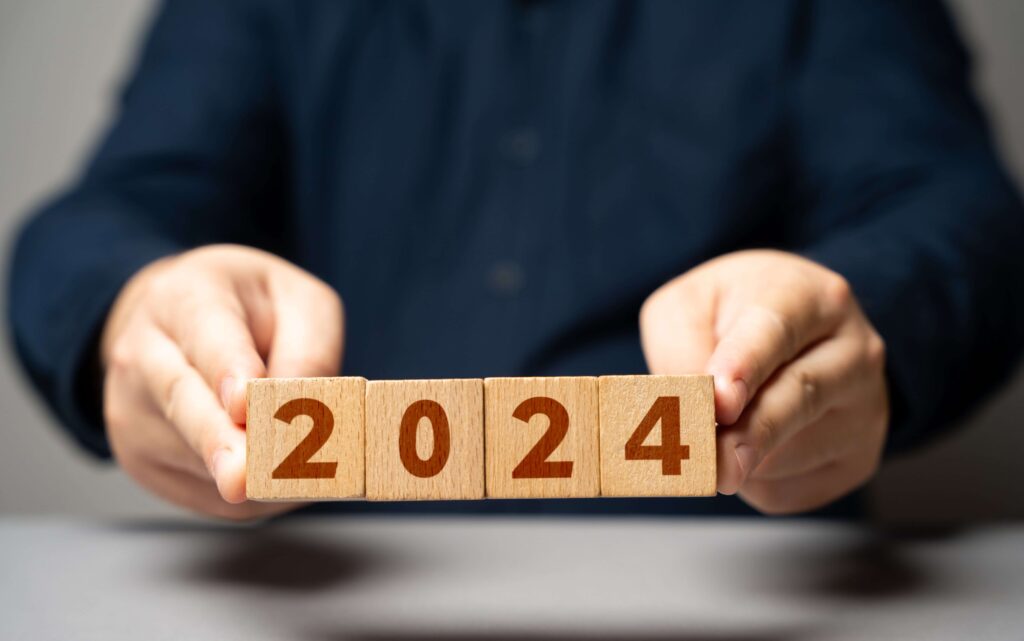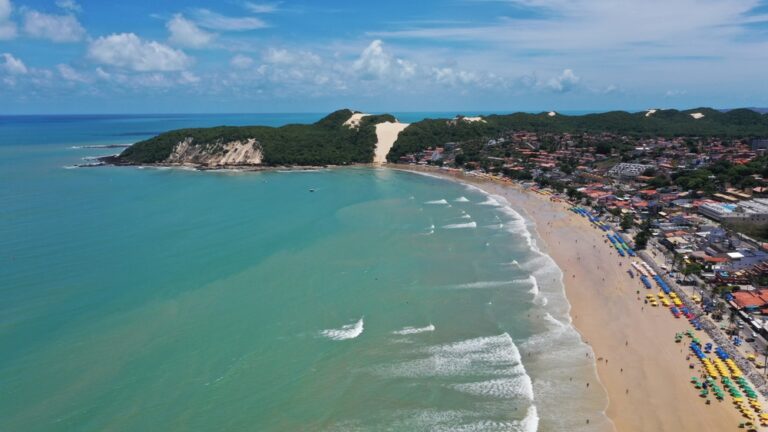Table of Content
ToggleIntroduction
As we approach 2024, Brazil’s economy is expected to undergo significant changes and face challenges in various sectors. The country, known for its abundant natural resources and diverse economy, has been dealing with an array of issues that span from political instability to fluctuating global market demands. Forecasting Brazil’s economic growth and development for the upcoming years has become a critical topic for analysts, investors, and policymakers both nationally and internationally.

The Brazilian economy, which was once considered one of the fastest-growing emerging markets, has experienced a slowdown in recent times. However, various factors, such as investments in infrastructure, renewable energy, and technology, indicate that Brazil is poised for a potential rebound. Understanding the key economic indicators, policies, and global factors that influence Brazil’s economic prospects in 2024 is essential to predict the nation’s trajectory and to identify potential opportunities and challenges.
Key Takeaways
- Brazil’s economy is expected to experience significant changes and challenges in various sectors by 2024.
- Understanding key economic indicators, policies, and global factors is essential to predict Brazil’s economic prospects.
- Investments in infrastructure, renewable energy, and technology may contribute to a potential rebound in Brazil’s economy.
Brazil’s Economic Overview

Brazil, as one of the largest economies in the world, has experienced a range of ups and downs in recent years. Despite the challenges, the country’s real GDP is expected to show modest growth by 2024. The Brazilian economy has a diverse and complex economic structure, with key sectors such as agriculture, mining, manufacturing, and services all playing vital roles in maintaining the growth of the gross domestic product (GDP).
According to a study conducted in 2019, Brazil’s energy sector, particularly renewable energy, is projected to expand its share in the country’s total energy consumption by 3.3% by 2024. This growth is also expected to create a positive impact on Brazil’s electricity demands, showcasing the nation’s efforts in energy diversification.
The fertilizer industry also plays a significant part in Brazil’s economy, specifically in ensuring the sustainable production of biofuels. With the country’s economic recovery after COVID-19 expected in 2024, an increase in demand for fertilizers has the potential to contribute to the growth of Brazil’s biofuel industry.
Brazil’s education sector, as stated in the Plano Nacional de Educação (National Education Plan 2014-2024), aims to enhance the country’s competitiveness and economic dynamism by improving educational outcomes. Despite challenges in implementing these policies, progress in education remains crucial to Brazil’s overall economic development.
In light of the population growth, Brazil’s financing needs and spending projection for public services such as healthcare must also be considered. Future healthcare expenditures might affect the country’s ability to allocate resources to other sectors, which could, in turn, impact overall economic growth.
In conclusion, Brazil’s economy in 2024 is expected to maintain growth in the face of domestic and international challenges. The diversification and expansion of economic sectors such as energy, agriculture, education, and healthcare will play an essential role in securing a sustainable path for the country’s economic development.
Key Economic Indicators and Their Impact

Interest Rate
The Central Bank of Brazil has a significant role in controlling inflation and fostering economic growth through the manipulation of interest rates. The main interest rate in Brazil, the Selic rate, affects investment and growth. Lower interest rates can increase borrowing and investments which lead to economic growth. Conversely, higher interest rates can control inflation effectively but may hinder growth. Rate cuts or increases are measured in basis points and are a part of Brazil’s monetary policy.
Inflation And Unemployment
Inflation and unemployment are two key indicators that impact the Brazilian economy. High inflation can reduce purchasing power and dampen consumer spending, whereas low unemployment rates can signal a thriving economy. The government aims to control inflation through its monetary policy, using interest rates to target an optimal balance between growth and inflation control. The relationship between these indicators is crucial in understanding the trajectory of Brazil’s economy.
Trade and GDP
Brazil’s economic growth is highly dependent on its trade balance and GDP performance. Exports and imports are critical factors as they directly influence the nation’s GDP growth. Merging its vast natural resources with an expanding industrial base, Brazil constantly seeks to maintain a healthy trade balance. Strong export growth can significantly contribute to Brazil’s GDP, while imports enable access to goods and services that are essential for growth and investment.
Consumer Confidence and Spending
Consumer confidence and spending patterns play an important role in Brazil’s economy. When households have a positive outlook, they are more likely to raise their consumption levels, which in turn, leads to an increase in retail sales and overall private consumption. Retail sales figures, as well as consumer confidence indices, provide valuable insight into the state of the nation’s economy, revealing critical trends and potential areas for growth.
Brazil’s Debt Profile
Brazil’s debt profile, comprised of government and household debt, affects its economic growth and stability. The government must maintain a sustainable debt level while financing its expenditures. Likewise, a manageable household debt service ratio is essential for avoiding excessive stress on household finances. Brazil’s current account deficit, indicative of a net outflow of funds, reveals the overall balance between exports and imports. Tracking Brazil’s debt profile is necessary for devising future policies and assessing potential risks in its economy.
Key Players and Policies
Government Policies
In Brazil, the government plays a crucial role in shaping economic policies. Monetary policy, steered by the Central Bank, aims to control inflation and stabilize the Brazilian economy. Policymakers have been focusing on maintaining the target inflation rate within a tolerance margin, implementing measures to foster economic growth and development.
A notable figure in Brazil’s political scene is Lula da Silva, whose administration had a significant impact on the country’s economic policies in the past. Under his leadership, several social and economic reforms were introduced, contributing to the growth and development of the Brazilian economy.
Private Sector Economists
Private economists also play a vital role in forecasting and analyzing Brazil’s economy. By providing independent analyses and proposing alternative strategies, they help in shaping government policies and contribute to fruitful discussions on the country’s economic trajectories. These economists often provide insights into macroeconomic trends, exchange rates, and trade policies, which are essential for a better understanding of the Brazilian economy in 2024.
In conclusion, the 2024 forecast for Brazil’s economy depends on the combined efforts of key players such as government policymakers, influenced by figures like Lula da Silva, and private sector economists. Their decisions on various aspects like monetary policy, social and economic reforms, and other policy measures will shape the country’s economic trajectory to ensure sustainable growth and development.
Global Influence on Brazil’s Economy
Brazil’s economy is significantly affected by global factors like demand, commodity prices, and the financial performance of major trade partners such as the United States and Latin America. The interplay of these factors contributes to the overall economic landscape of Brazil as it moves towards 2024.
An essential aspect of Brazil’s economy is its reliance on exports, comprising mainly of agricultural products and natural resources. The country’s economic performance is highly dependent on global demand for its exports. As a result, fluctuations in demand from major trade partners like the United States and countries within Latin America can heavily influence Brazil’s economic growth. For instance, the National Education Plan in Brazil (2014-2024) highlighted the importance of promoting the competitiveness and dynamism of the Brazilian economy to cope with global challenges.
Commodity prices also play a vital role in shaping Brazil’s economic outlook. With a significant portion of Brazil’s exports consisting of commodities such as iron ore, soy, and oil, fluctuations in global commodity prices directly impact the country’s trade balance, revenue, and subsequent economic growth. For example, an increase in soybean prices may lead to higher earnings for Brazil, while a drop in oil prices may adversely affect its revenue from petroleum exports. According to an Assessment of the economic structure of Brazilian agribusiness, soybeans are expected to remain an essential export for Brazil, making the nation susceptible to shifts in global commodity markets.
Furthermore, decisions made by international organizations and foreign governments can affect Brazil’s economy. For instance, policy changes regarding global climate change, trade regulations, and currency exchange rates could influence Brazil’s ability to export goods, attract foreign investment, and maintain economic stability.
In summary, as Brazil approaches 2024, its economy will continue to be subject to global influences in the form of demand, commodity prices, and the actions of its trade partners and international organizations. By understanding and adapting to these factors, Brazil has the potential to strengthen its economy and ensure sustainable growth in the long run.
Frequently Asked Questions
What is the projected GDP growth for Brazil in 2024?
It is difficult to predict the exact GDP growth for Brazil in 2024, as it depends on various factors and scenarios. However, some reports and publications provide valuable insights into Brazil’s potential economic growth.
Which sectors will contribute most to Brazil’s economic growth in 2024?
In the coming years, certain sectors are expected to contribute to Brazil’s economic growth, including agribusiness, infrastructure, and renewable energy. The share of biomass in Brazil’s total installed capacity is expected to reach 3.3% by 2024.
How will foreign investment affect Brazil’s economy in 2024?
Foreign investment plays a significant role in Brazil’s economic growth and development. An increase in foreign investment could lead to the expansion of various industries, ultimately contributing to the country’s GDP growth and overall economic development.
What challenges will Brazil’s economy face in 2024?
While it is hard to predict the exact challenges Brazil’s economy will face in 2024, some potential concerns include political uncertainty, insufficient infrastructure, and income inequality. Addressing these issues properly can improve the country’s economic prospects.
Will there be any changes in Brazil’s GDP per capita in 2024?
Though it is difficult to provide specific figures, it is expected that Brazil’s GDP per capita will experience some growth as the economy develops. However, this growth might not be evenly distributed, and income inequality may continue to pose a challenge.
What is the expected economic performance of Brazil’s key trading partners in 2024?
Brazil’s key trading partners, such as China, India, and the United States, are expected to continue growing their economies, which could positively impact Brazil’s exports and overall economic performance. However, various factors may influence the economic performance of these trading partners, making it difficult to predict the exact impact on Brazil’s economy.












